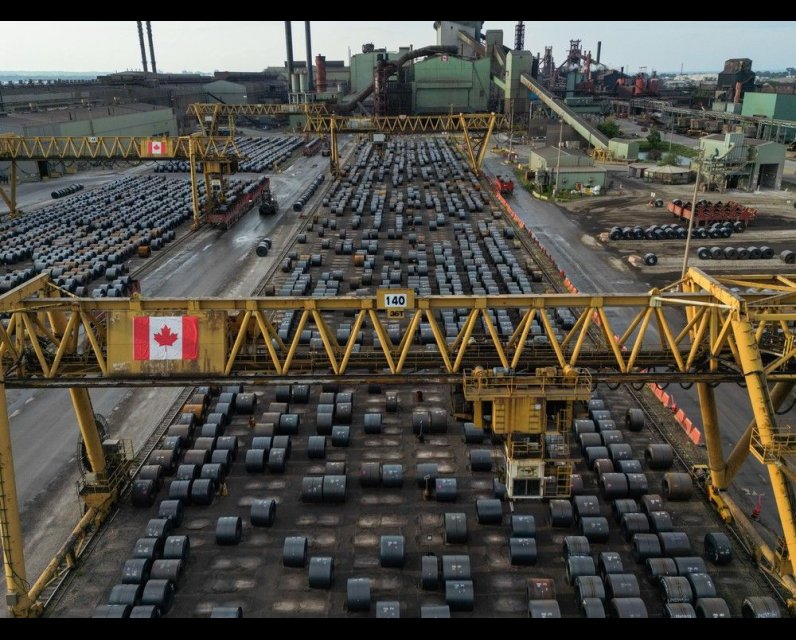The U.S. Senate voted to end tariffs against Canada. Here's why it won't matter

The United States’ Senate approved a resolution on Wednesday seeking to block President Donald Trump from further imposing tariffs on Canada.
It was the second vote this week on Trump’s tariffs. The first came on Tuesday, with regards to Brazilian tariffs . A third was held on Thursday regarding tariffs that affect global trade.
Each time, four Senate Republicans joined Democrats in seeking to end the tariffs, giving the anti-tariff side a narrow majority.
However, the vote was largely symbolic. Here’s why.
What happened in the Senate?When Trump first initiated tariffs against Canada, he did so under an emergency declaration. Technically speaking, tariff power is a power reserved for Congress. In order to get around that, Trump needed to declare a national emergency.
The Senate’s resolution sought to end the declaration of a national emergency , which would, in effect, end the tariffs.
But in order to pass, it needed Republicans to vote alongside the Democrats in the Republican-controlled Senate.
There are 53 Republicans in the Senate and 45 Democrats. Two senators sit as Independents. In order to secure a majority, the Democrats needed the two Independent votes plus four votes from Republicans. As it turned out, four Republicans did break with their colleagues.
They were Kentucky’s Mitch McConnell and Rand Paul, Maine’s Susan Collins and Alaska’s Lisa Murkowski.
Why did this happen now?In response to Ontario’s ad depicting Ronald Reagan criticizing tariffs when he was president, Trump promised to ratchet up tariffs on Canada by a further 10 per cent.
McConnell specifically spoke about the ad in his justification for his vote.
“The economic harms of trade wars are not the exception to history, but the rule. And no cross-eyed reading of Reagan will reveal otherwise,” McConnell said in a statement on Tuesday, according to Politico . “This week, I will vote in favour of resolutions to end emergency tariff authorities.”
The Senate had also previously tried to end the declaration of a national emergency back in April.
Will it matter?Probably not. It’s unlikely to pass in the House of Representatives. The Republicans have a 219 to 213 majority over the Democrats in the House of Representatives.
But maybe it would. If it passes both houses of Congress, it would then go to the president to sign into law. Trump would almost certainly veto it, though.
However, if two-thirds of Congress voted in favour of scrapping the national emergency declaration, Trump’s veto would be overridden.
Is that all?No, the National Emergencies Act, which Trump used to declare the national emergency to apply tariffs against Canada, must be congressionally reviewed every six months.
Procedural rules state that if a resolution to terminate a national emergency is introduced, it must be brought to the floor within 15 days and voted on within three calendar days.
However, House Republicans just changed the definition of “calendar days.” They did so in March and again in April.
In the case of the April measure, the Senate voted in favour of a joint resolution to terminate the national emergency. This resolution was then to go to the House of Representatives. (Another resolution failed because McConnell and Sheldon Whitehouse, a Democrat, were not present for the vote .)
A clause inserted into a routine vote on budgetary measures says that the days from April 9, 2025, to Sept. 30, 2025, “shall not constitute a calendar day” in reference to the National Emergencies Act and therefore no vote would be held.
That procedural tactic has since delayed any vote until March 2026, after Congressman Gregory Meeks attempted to force a vote on Trump’s tariffs against Brazil. (There is some talk that a vote could be held in January.)
What does this mean?It means that unless the House of Representatives changes its rules, there will not be any votes on the Senate resolutions on tariffs, which means there will be no chance of legislatively blocking Trump’s tariffs.
Our website is the place for the latest breaking news, exclusive scoops, longreads and provocative commentary. Please bookmark nationalpost.com and sign up for our newsletters here.

Comments
Be the first to comment